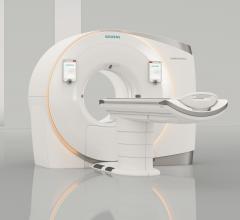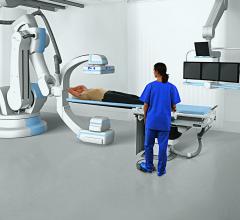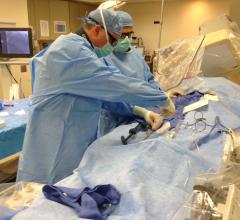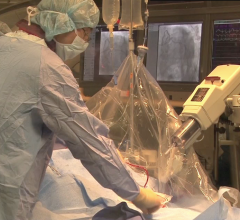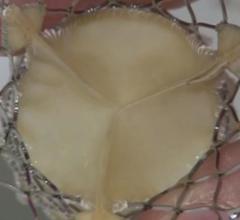Atrial fibrillation patients with a prior history of stroke who undergo catheter ablation lower their long-term risk of a recurrent stroke by 50 percent, according to new research from the Intermountain Medical Center Heart Institute.
William Abraham, M.D., FACC, discusses advances in heart failure device treatment technologies at the Transcatheter ...
Siemens Healthineers announced that University of Iowa Stead Family Children’s Hospital in Iowa City is the first facility in the United States to install the company’s Somatom Drive computed tomography (CT) system. This new high-performance scanner joins the Somatom Force and Somatom Definition Flash in the dual source segment of the company’s CT portfolio.
Providing exceptional cardiovascular care for patients to achieve the best possible outcomes is the number one goal for ...
Barco recently announced that Nexxis, its IP-based OR imaging management platform, is now operating in over 1,000 operating rooms worldwide.
Siemens announced it intends to further develop its healthcare business, Siemens Healthineers, and give it even greater flexibility in implementing its growth plans. To this end, the company is planning to publicly list its healthcare business.
November 10, 2016 — A Henry Ford Hospital cardiologist is pioneering a promising new procedure to improve the success of ...
Cardiac positron emission tomography (PET) is growing in popularity among cardiologists because it provides the ability ...
Siemens Healthineers announced U.S. Food and Drug Administration (FDA) 510(k) clearance for a hand-held portable coagulation analyzer. The Xprecia Stride Coagulation Analyzer delivers fast, reliable Prothrombin Time/International Normalized Ratio (PT/INR) testing for point-of-care monitoring and management of oral anticoagulation therapy with warfarin, a vitamin K antagonist.
NeoChord Inc. announced the first use of its DS1000 System in the United States as it enrolled the first patient in the RECHORD Trial.
Current ACCF/AHA guidelines recommend fibrinolysis (FL) as the preferred reperfusion strategy for ST-segment elevation myocardial infarction (STEMI) patients with expected delays of > 120 minutes from first medical contact to percutaneous coronary intervention (PCI). The guidelines recommend this be followed by transfer to a PCI center with angiography/PCI within 3-24 hours. However, assessment of reperfusion prior to angiography may not be accurate based on clinical and electrocardiogram (ECG) criteria alone. Recent data suggested increased recurrent ischemic events within the first 24 hours. The aim of this study, which was conducted from 2003-2015, was to assess the safety of very early PCI (< 3 hours) following FL.
When performing radiofrequency (RF) ablation to treat cardiac arrhythmia, medical professionals must balance the safety ...
The recent, sudden death of a 13-year-old boy resulted in more than 20 relatives being incorrectly diagnosed as having a potentially lethal heart rhythm condition. This erroneous diagnosis occurred as a result of inappropriate use of genetic testing and incorrect interpretation of genetic test results, according to Mayo Clinic research published in Mayo Clinic Proceedings.
November 9, 2016 — Merit Medical Systems Inc. announced that it has received 510(k) clearance for the SwiftNINJA ...
November 9, 2016 — A pioneering way to access the heart for transcatheter valve replacement has a 98 percent success ...
Change Healthcare Cardiology Hemodynamics is an integrated hemodynamic monitoring system for monitoring vital signs and ...
A discussion with Michael Reardon, M.D. about the state of transcatheter aortic valve replacement (TAVR) as of late 2016 ...
November 9, 2016 — A dedicated stent study conducted exclusively in women and minority patients evaluated clinical ...
Patients who undergo minimally invasive heart valve replacement, known as transcatheter aortic valve replacement (TAVR), sometimes develop heart rhythm problems that necessitate placement of a permanent pacemaker. However, when a pacemaker is needed soon after TAVR, patients often have worse outcomes than those who did not need a pacemaker, according to a study published recently in JACC: Cardiovascular Interventions. The study shows that the risks are both short- and long-term and include lengthier hospital and intensive care unit stays as well as a greater risk of death.

 November 14, 2016
November 14, 2016

